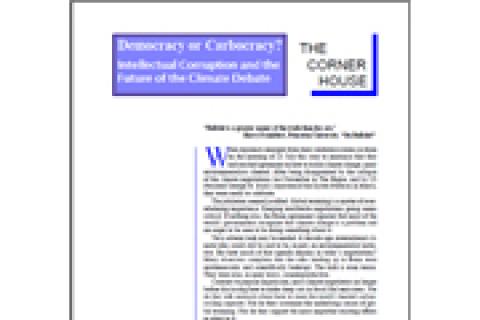Representatives of the Indigenous Peoples present at the 7th Conference of the Parties (COP) of the United Nations Framework Convention on Climate Change (UNFCCC), held in Morocco in November this year, issued a declaration demanding recognition of their rights and warning on the danger of the so-called “carbon sinks.” The following paragraphs are part of this declaration, available in Spanish on our web page (http://www.wrm.org.uy/actores/CCC/IPMarrakesh.html).
Other information
by Larry Lohmann, Corner House Briefing 24
Mangroves are the coastal equivalent of tropical forests on land. There are various types of mangroves: coastal mangroves, growing without the input of fresh water from inland and that can extend for various kilometres, mangroves growing mainly at the mouths of rivers or deltas, that may be very extensive, and coral reef mangroves that grow on coral reefs above sea level. But they all have something in common, they are very special, fragile and endangered “salt water forests”.
At present, mangrove forests cover an area of 181,000 km2, distributed in over 100 countries, but during the past 50 years, over 50% have been lost. Some direct activities are destroying mangroves or are degrading them, including substitution by other activities such as shrimp farming and agriculture, forestry, salt extraction, urban development, tourist development and infrastructure. Furthermore, other impacts include deviation of river water and contamination, caused by heavy metals, oil spills, pesticides and other products.
Most people that eat shrimp are unaware of where it comes from and about the impacts its production implies. Most of the commercial shrimp is either caught wild using destructive fishing methods, or produced in industrial shrimp ponds, which constitute the main cause of mangrove destruction.
The destruction of mangrove forests implies the loss of unique species. Mangroves link the tropical forests with the coral reefs, providing a critical transition between terrestrial and marine ecosystems. They also protect shorelines from erosion, capture sediments --thus protecting coral reefs-- and are the spawning grounds for the majority of tropical commercial fish. They also protect coastal lowland rainforests from tropical storms. They are critical to local biodiversity, harbouring plants and animals totally unique to mangrove ecosystems.
Globalisation has encroached upon our table. Foods are trailed all along the seas, from South to North and from East to West. The farther, the better (for transnational companies) because that implies trade, packing, conservation processes, tariffs, importers, exporters, and so on.
Nowadays, there are tropical fruits available in cold countries’ markets, or fish and seafood in landlocked regions. And the list goes on. This is shown as a sign of progress and more choices for the people...
This ground-breaking book explains the history and politics of dam building worldwide and shows why large dams have become the most controversial of technologies. It describes the many technical, safety and economic problems which afflict the technology, the structure of the international dam–building industry, and the role played by international banks and aid agencies in promoting the technology in the South.
One of the most commonly used arguments by those promoting large scale monoculture tree plantations is that they generate employment. As we will see from the following examples, such arguments are false.
Soap, lipsticks, chocolate or perfumes are difficult to perceive as products associated to deforestation and human rights abuses in the tropics. However, this can easily be the case when one of their components is palm oil, though few people outside the plantation areas are aware about this.
The first aim of this book is thus to highlight the impacts associated with large-scale oil palm plantations by providing a general overview of the problem and a broad range of country-level situations, ranging from articles to detailed case studies in Africa, Asia and Latin America.
This book includes a selection of articles published in the World Rainforest Movement's (WRM) Bulletin on the issue of Forest Stewardship Council certification of tree plantations.
A draft “Revised Forest Strategy for the World Bank Group” was recently placed on the World Bank’s web page ( www.worldbank.org/forestry ). The draft strategy is scheduled to be discussed by a Sub-Committee of the World Bank’s Board in late September and to be adopted by the full Board by the end of 2001. Strategies intend to provide guidance for World Bank staff but their recommendations are not binding. Operational Policies (OP) on the other hand are binding documents and provide the most important yardstick against which civil society groups can hold World Bank staff accountable.



